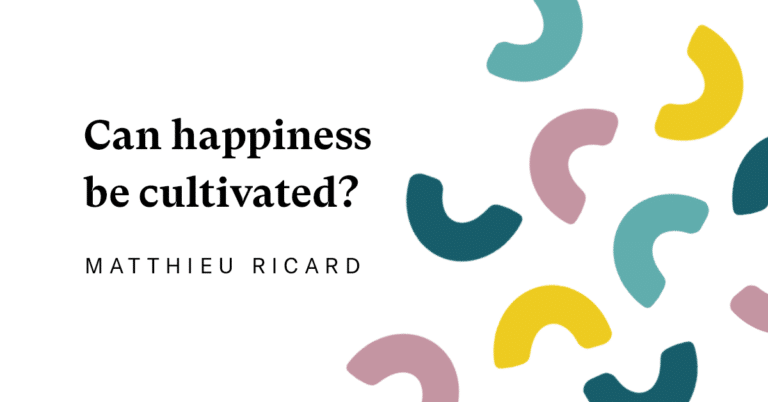
Image by Paul McGeiver/Flickr (CC BY-NC-ND 2.0)..
The Three Personality Types of Buddhist Psychology
In the Buddhist psychology, there are three personality types described. Not everyone fits neatly into one of the three slots of course; in some ways we are all a mixture of each of the three. But sometimes there is a constellation of tendencies that would have one say, “Oh, I’m mostly that type.”
We can learn a lot about different aspects of ourselves as we explore these personality types — perhaps, most importantly, that these are impersonal tendencies that we don’t have to rigidly identify with or have define us. Understanding these conditioned tendencies helps us see the tremendous relativity happening all of the time. For example, in any particular situation, some people will tend to look on the bright side, some will naturally focus on what is wrong, and some will get quite confused. These three responses conform to the three main character types in Buddhist psychology: the greedy type, the angry type, and the deluded type.
To refer to these types isn’t pejorative. We are all conditioned in some way or another, and most importantly, through the power of awareness we can learn not be limited by our conditioning, whatever it might be. Each type has a purified and unpurified form, which means there is a jewel embedded within that set of tendencies. Through mindfulness we can extract it and transform. The problem is not the tendency, the problem is fixation — when we pretty much have a set way of reacting to everything. Mindfulness opens up a world of options to us.

The first type is the greedy type. This doesn’t at all mean you are a greedy person. This type is described as the kind of person who walks into a room and her eye falls on what she likes, what she finds lovely or desirable, while she overlooks what may be worn away, or damaged, or falling apart. This is the person who, in a meeting when a dilemma is presented, will say “It will all work out, “ while you sit there thinking, “How will it all work out?”
The Visuddhi Magga, a fifth century commentarial work in the Theravadan Buddhist tradition, says of the greedy type:
“They seize on trivial virtues, discount genuine faults, and when departing, they do so with regret as if unwilling to leave.”
In the purified form, that tendency towards only wanting to see the pleasant gets transformed into a willingness to draw near to all aspects of life, to experience life more fully, not holding back or hiding.

The angry type is quite different. She might not literally be an angry person, but her tendency is to focus in on what’s wrong, what’s challenging or obstructing in getting what one wants. This type of person is described as one who goes into a room and her eye falls upon what is displeasing to her — right away she will notice the burn mark in the carpet or the disgruntled expression on a colleague’s face.
This is the type of person who is in a meeting when an opportunity is presented, and her very first comment will be a hasty, “It won’t work.” You might be sitting there thinking, “Why not? Why couldn’t it work?” The Visuddhi Magga describes this type of person in this way:
“They pick out trivial faults, discount genuine virtues, and when departing, they do so without regret as if anxious to leave.”
In the purified form this gets transformed into a discerning wisdom. That tendency to mainly see what’s wrong also contains an aspect of not staying on a superficial level of perception, being ready to look deeper than many others are inclined to, and being willing to honestly recognize what is unpleasant or unwelcome.

The deluded type (my type, emphatically) is somewhat muddled or spaced out. If something goes wrong, the great temptation is to take a nap, tune it out. If something is wonderful, it might not be fully taken in. This type tends to be mellow, but without a lot of acuity of perception, unless trained to clarify and refine attention. The Visuddhi Magga says:
“When one of deluded temperament sees any sort of visible object, they copy what others do. If they hear others criticizing, they criticize; if they hear others praising, they praise, but actually they feel equanimity in themselves, the equanimity of unknowing!”
This is the type who in a meeting will be slow to process the dilemma or opportunity, and not quite sure right away how they feel about it. In the purified form delusion becomes a true equanimity, not based on missing fine details or being in a cocoon of withdrawal from engagement with life, but a full on sense of balance that is combined with clear and precise attention.
Just for fun, I’m including this passage from the Visuddhi Magga, which talks about how each type tends to walk, eat, sweep a path, etc:
“When they sit or they lie down to go to sleep, one of greedy temperament spreads their bed unhurriedly, lies down slowly, composing their limbs and, they sleep in a confident manner. When woken, instead of getting up quickly, they give their answers slowly as though doubtful.
One of angry temperament spreads their bed hastily anyhow. With their body flung down, they sleep with a scowl. When woken, they get up quickly and answer as though annoyed.
One of deluded temperament spreads their bed all awry and sleeps mostly face downward with their bodies sprawling. When woken, they get up slowly, saying, ‘Huh?’”
Does any of this sound familiar? We all probably know that first type of person, who has a hard time facing difficulties in situations, and might almost insist on ignoring them; they just want everything to be nice all of the time. We all probably know that second type of person, whose mind seems to seize on what is wrong in any situation, sometimes pointing out problems everyone else has missed (but not necessarily thinking they will be resolved!). And we all probably know that third type of person, who easily gets confused, uncertain about what they actually feel or perceive, somewhat dependent on the views of others.
We know people like that, and very likely we can find some of our own traits in this typology. Remember that for whatever conditioning, mindfulness is the alchemical agent, with the capacity to transform it all.

